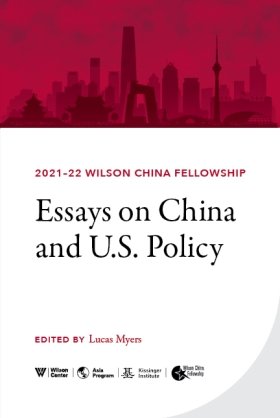Understanding Hawkishness in Chinese Public Opinion

Abstract
As tensions and competition between the United States and China rise, hawkish sentiments are gaining prominence in both countries. What do such trends mean for future diplomacy and cooperation? In this report, I share findings from recent surveys on Chinese public opinion concerning Sino-U.S. relations. The surveys show that hawkishness, which I define as strategic pes-simism towards cooperation, is correlated but distinct from widely used at-titudinal measures of favorability. The survey data also suggests that Chinese respondents are less emotional in their positions than what we see on the Chinese internet and media reporting. Furthermore, the surveys reveal that hawkishness in the Chinese public is more a reflection of internal factors than a reaction to external pressure. Overall, the survey results suggest a relatively coherent and cautiously optimistic Chinese public that sees options for diplomacy even as greater competition and rivalry seem inevitable.
Implications and Key Takeaways
- Hawkishness is distinct from favorability and the two concepts should not be treated interchangeably. It is possible for U.S. policymakers to influence Chinese public opinion with a focus on maintaining optimism about the future rather than worrying about whether positions will be viewed positively or not. For instance, holding out the possibility for mutually beneficial engagement for the future while simultaneously pushing back on Chinese economic opportunism in the present is a viable policy approach.
- Chinese netizens are not sensitive to moralistic rhetoric and U.S. policymakers need not assume that moralizing rhetoric coming from Chinese elites animates public sentiment. For U.S. policymakers the implication is that making moral appeals should be done with specific audiences in mind. While a domestic American audience may appreciate a morally driven approach, Chinese audiences will likely require a different angle. U.S. efforts to get Chinese leaders to condemn Russia’s invasion of Ukraine, for example, might be more effective in underscoring the economic and reputational risks faced by China rather than appealing to moral obligations.
- While Chinese netizens are outwardly incensed by value-based criticism of China, they are unlikely to change their views on Sino-U.S. relations in response to criticism. The implication here is that U.S. policymakers need not worry that promoting democratic values and priorities will necessarily result in a public backlash within China. At the same time, such criticisms are unlikely to yield sympathy or change in attitude within China.
- Many Chinese netizens perceive Western countries as fearing China’s rise and harboring intentions to contain China’s future growth and influence. U.S. policymakers can pursue counter-narratives that communicate American confidence as well as openness to a more influential China. The heart of the challenge here is to signal confidence and strength in America’s negotiating position without creating a sense of urgency for China to pursue aggressive policy goals for fear of diminishing leverage in the future.
- Chinese netizens remain open to diplomacy even as they anticipate rising competition. Unfortunately, Chinese incumbent leaders have been articulating a bleak narrative concerning the future of relations with the West under the competition framework and it is becoming increasingly important to offer counter narratives. These narratives need not be encompassing in scope, but there are narrower arenas such as energy security, trafficking, or money laundering, where earnest and open-minded negotiation could serve as testament that diplomacy remains a viable approach.
Author

Assistant Professor of Political Science, Maxwell School of Citizenship and Public Affairs, Syracuse University



